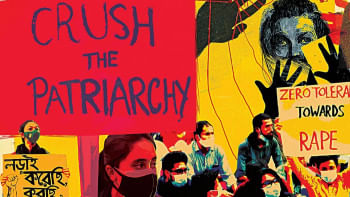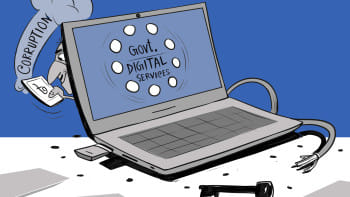Who will rescue the rescue app for women?

In a country where sexual harassment and violence against women are rampant despite there being various legal and administrative safeguards, the failure of an app meant to help women in trouble to reach its intended users is perhaps not a big surprise. But it does feel like a wasted opportunity, especially given the widespread use of mobile phone and internet among women in Bangladesh.
The "Joy" app—through which women facing violence can send rescue pleas to law enforcers, family and friends—was seen as a laudable step when it was launched in 2018. However, over the last six years, only six requests were sent through the app, according to a recent report by this daily. For context, over the last four years, more than 6,000 women were raped and more than 300 were murdered after rape. Had the app worked properly or had girls and women known about it, could some of those victims be reached in time?
You can no longer find the app on Google Play, and no link to the app is even visible on the landing page of the website of the Ministry of Women and Children Affairs (MoWCA) or other relevant ministries. The app is apparently under reconstruction currently, and Google might have restricted some of its features in Android 12. But this is no excuse for its serial underperformance in all the years that it has existed.
We have seen a similar usage pattern with the MoWCA's 109 helpline, which is not being used for the purpose it was intended to serve. Moreover, since 2013, an estimated 600-plus apps have been developed by the government, but like Joy, most of these disappeared from Google Play. Joy was built with a budget of Tk 45 lakh. If similar amounts were spent to develop the other apps, imagine how much of taxpayers' money went to waste.
It is clear that government officials and organisations behind these initiatives put little effort into properly utilising them, making a mockery of the whole investment. But rescue tools like an app or helpline can save many potential victims of violence, if properly used and promoted. We urge the authorities to take immediate steps to revive these important tools.


 For all latest news, follow The Daily Star's Google News channel.
For all latest news, follow The Daily Star's Google News channel. 











Comments